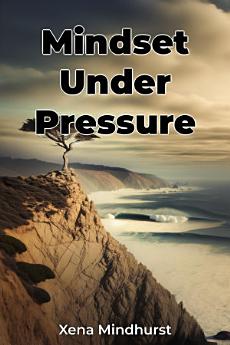Mindset Under Pressure
About this ebook
The book distinguishes itself by merging scientific rigor with tactical exercises, avoiding oversimplified advice. It opens by demystifying the biology of stress, using analogies like comparing cognitive overload to a computer’s strained processor. Later chapters progress from theory to action, offering tools such as “stress blueprints” and scenario visualization. Unique ethical discussions, like balancing resilience training with workplace boundaries, add depth. Case studies—a surgeon managing operating room crises or a teacher navigating classroom conflicts—humanize the science, while fMRI data and military training examples underscore its evidence-based approach.
Written in conversational tone, Mindset Under Pressure caters to professionals, caregivers, and anyone facing high-stakes decisions. Its structured four-part framework moves from debunking stress myths to creating personalized resilience plans, emphasizing agency and incremental growth. By framing stress as a catalyst rather than a threat, the book equips readers to harness pressure as an opportunity for mastery.








